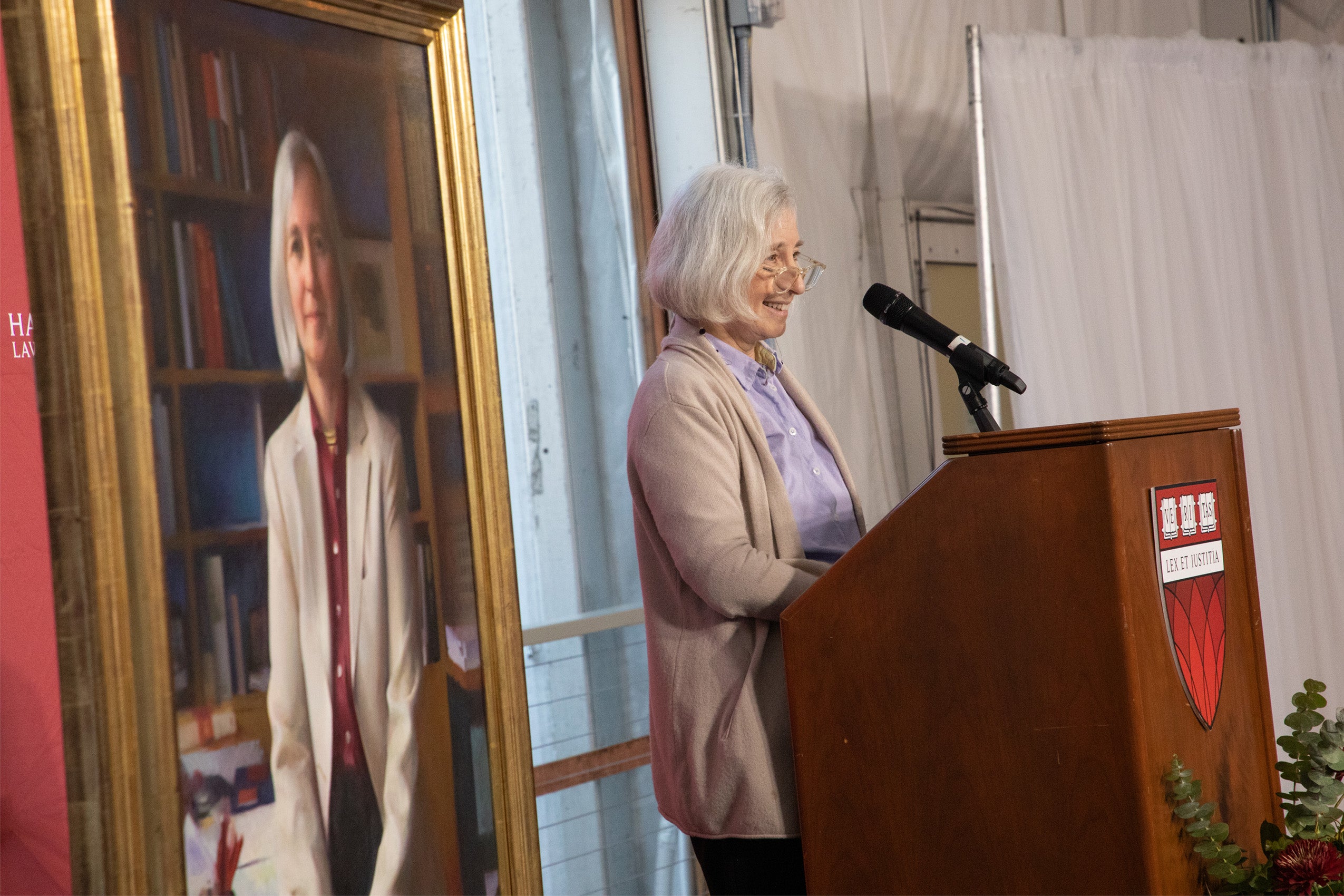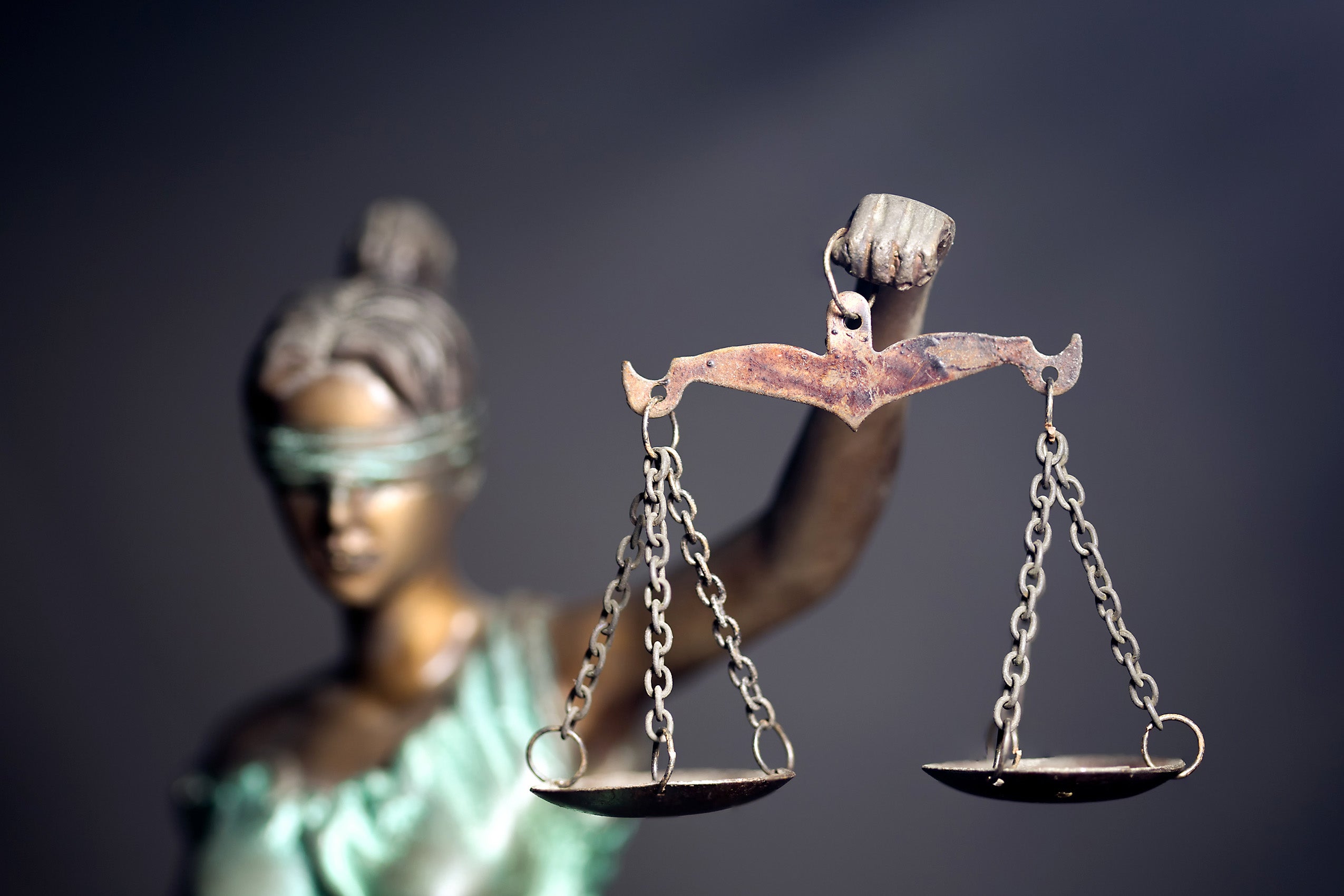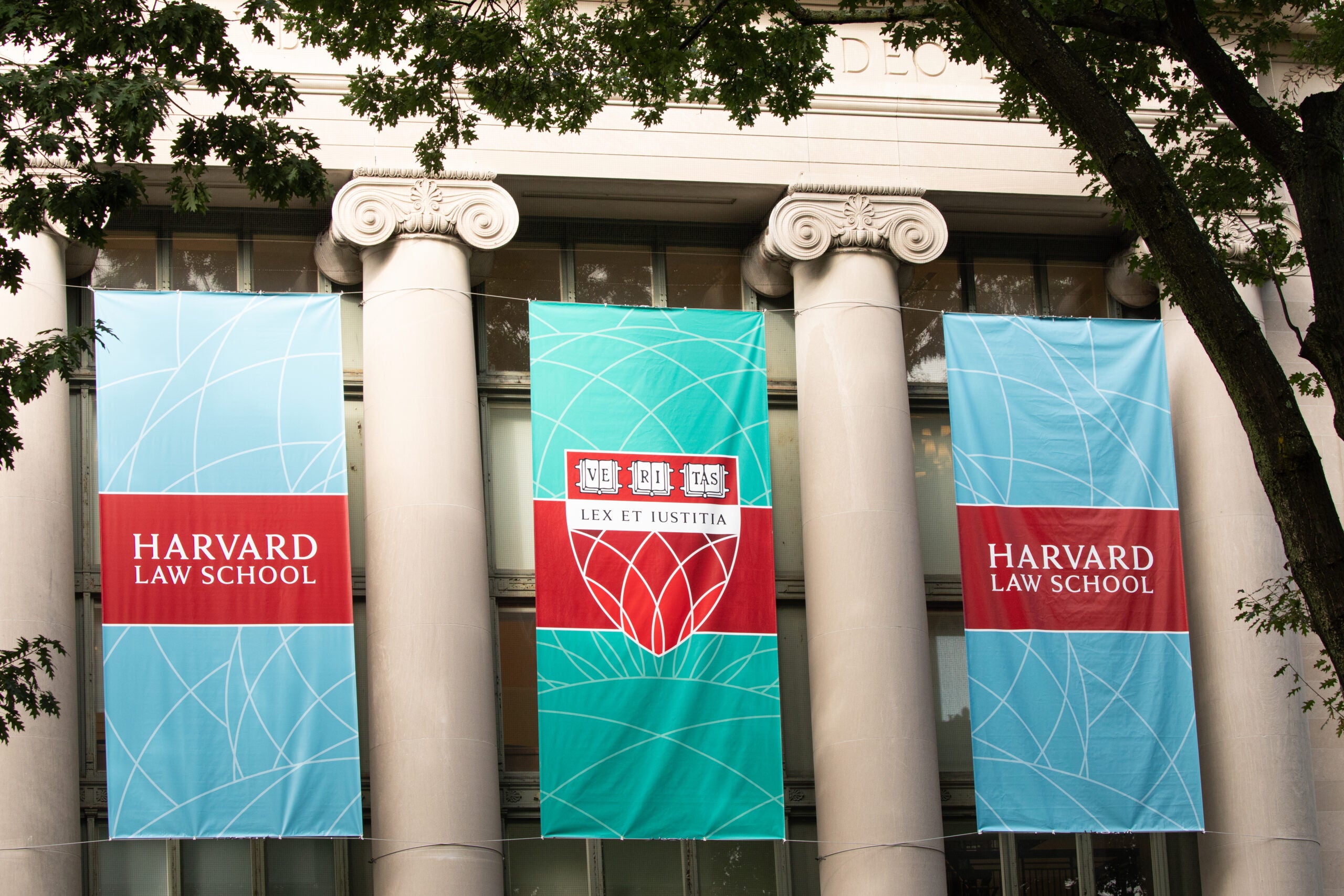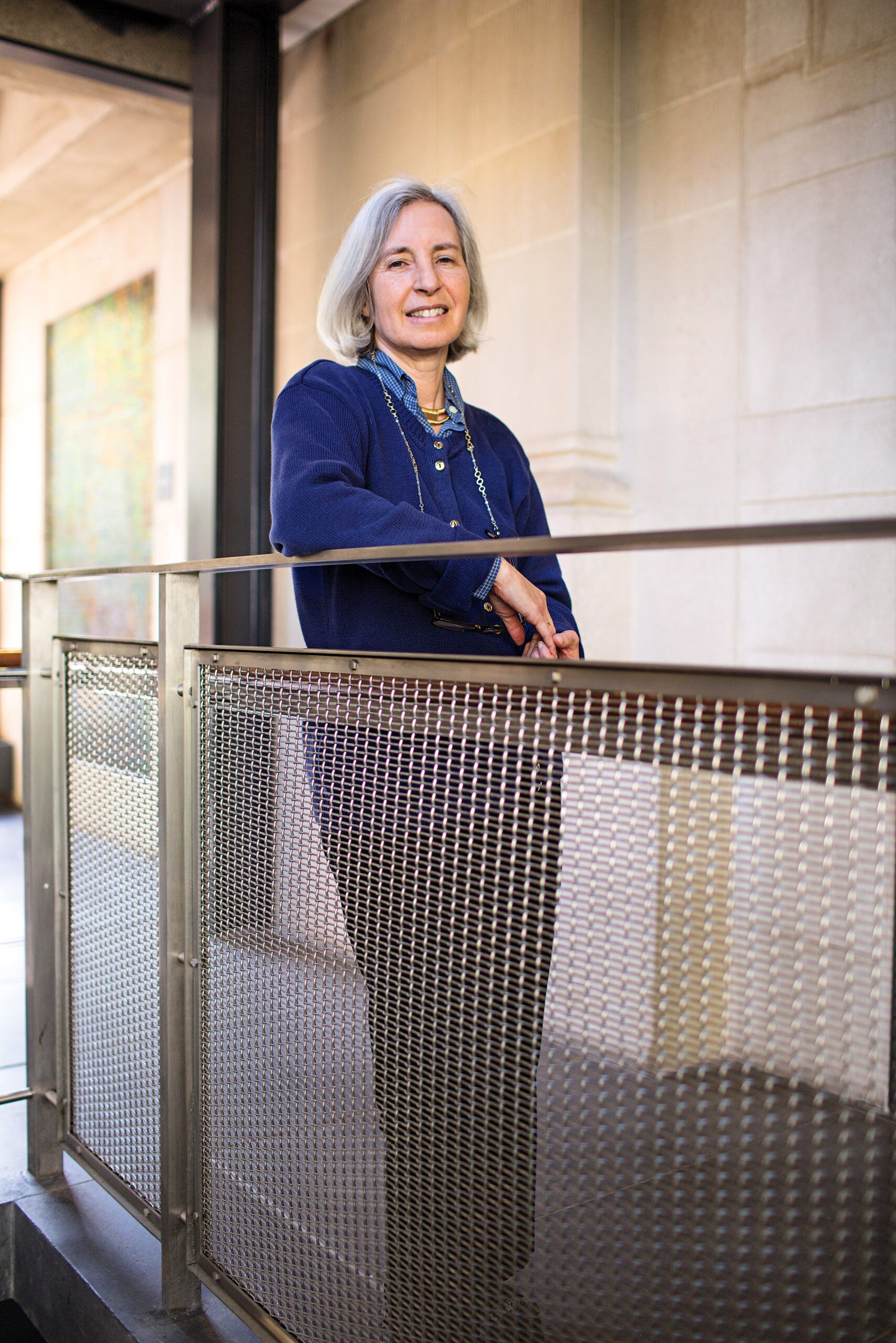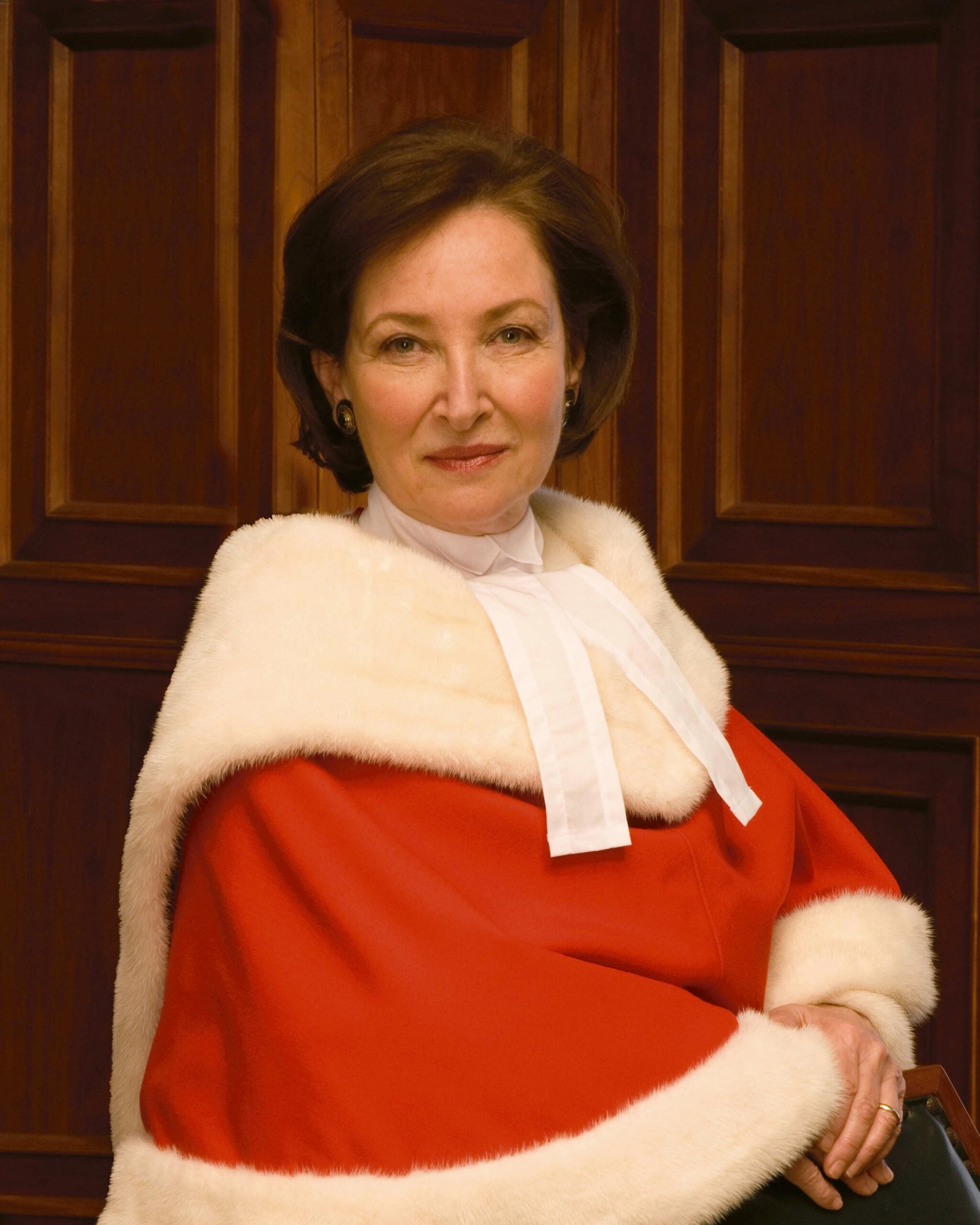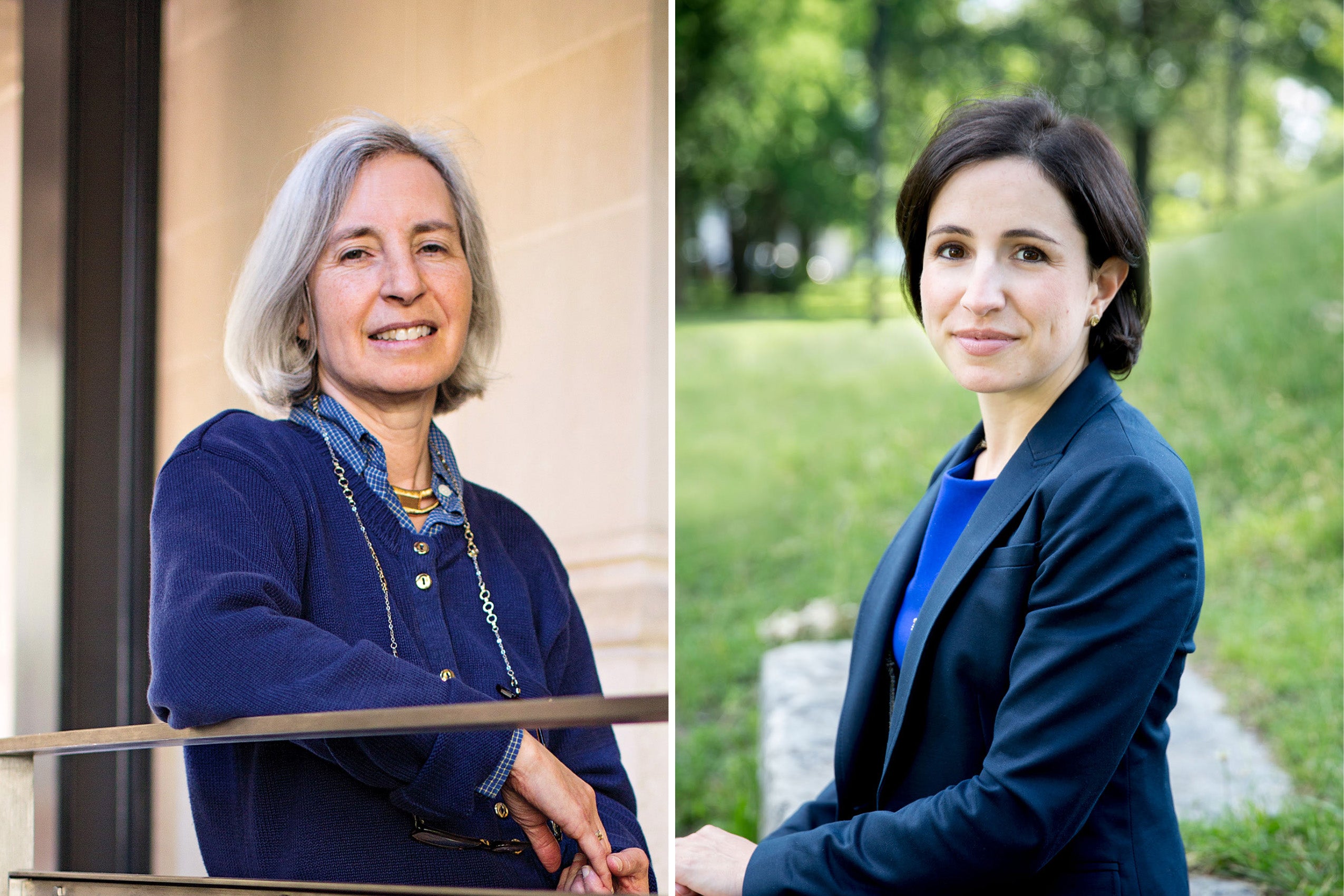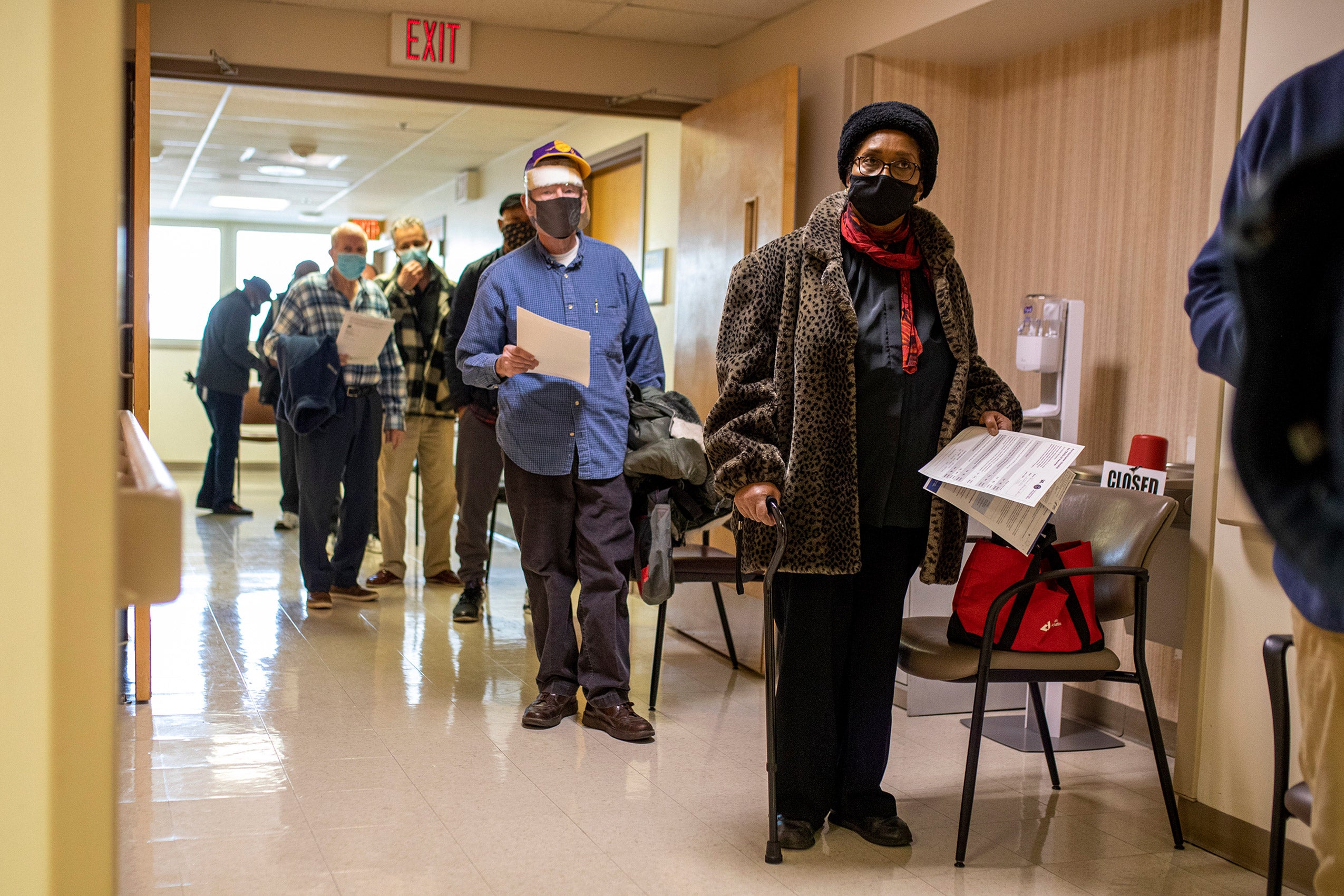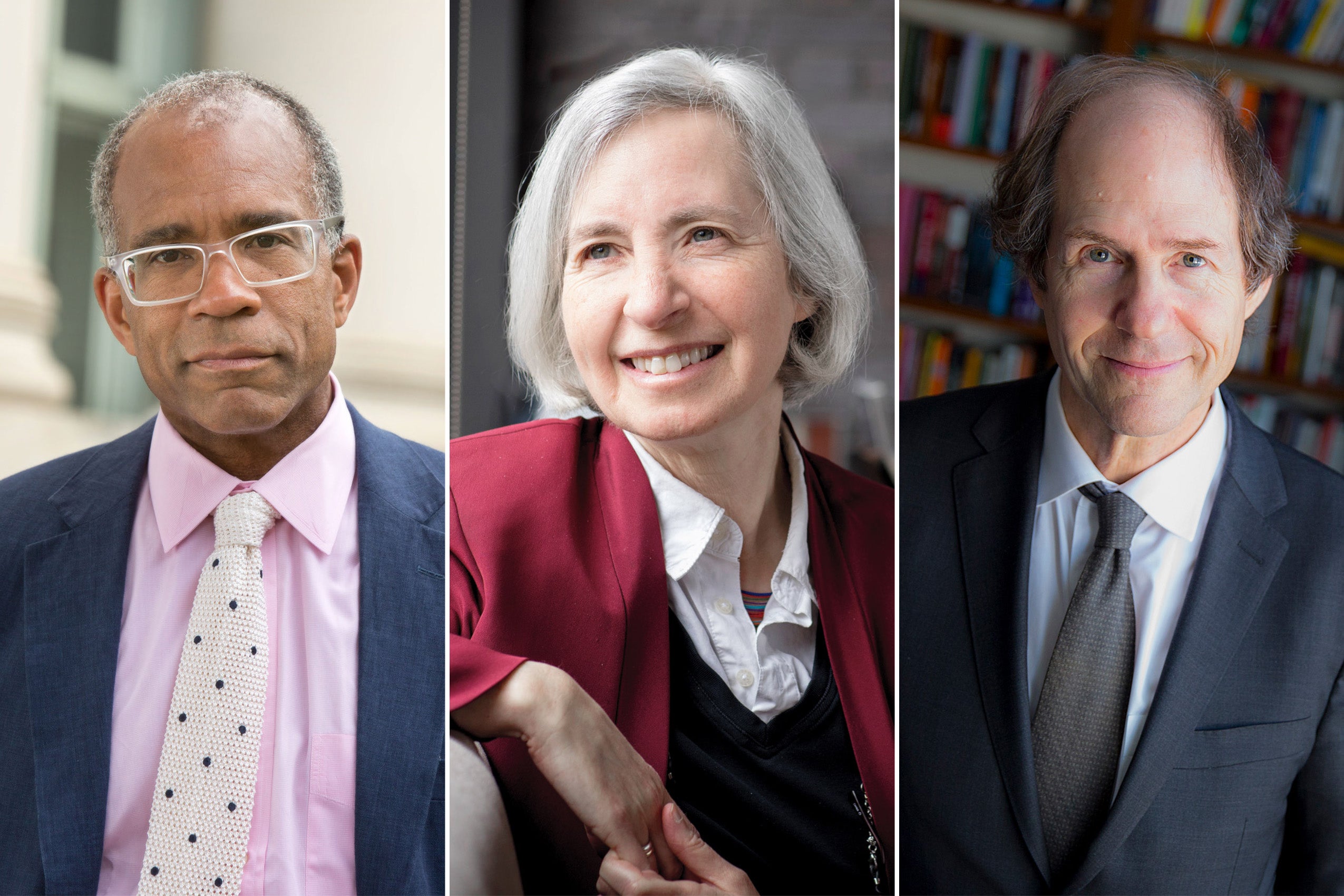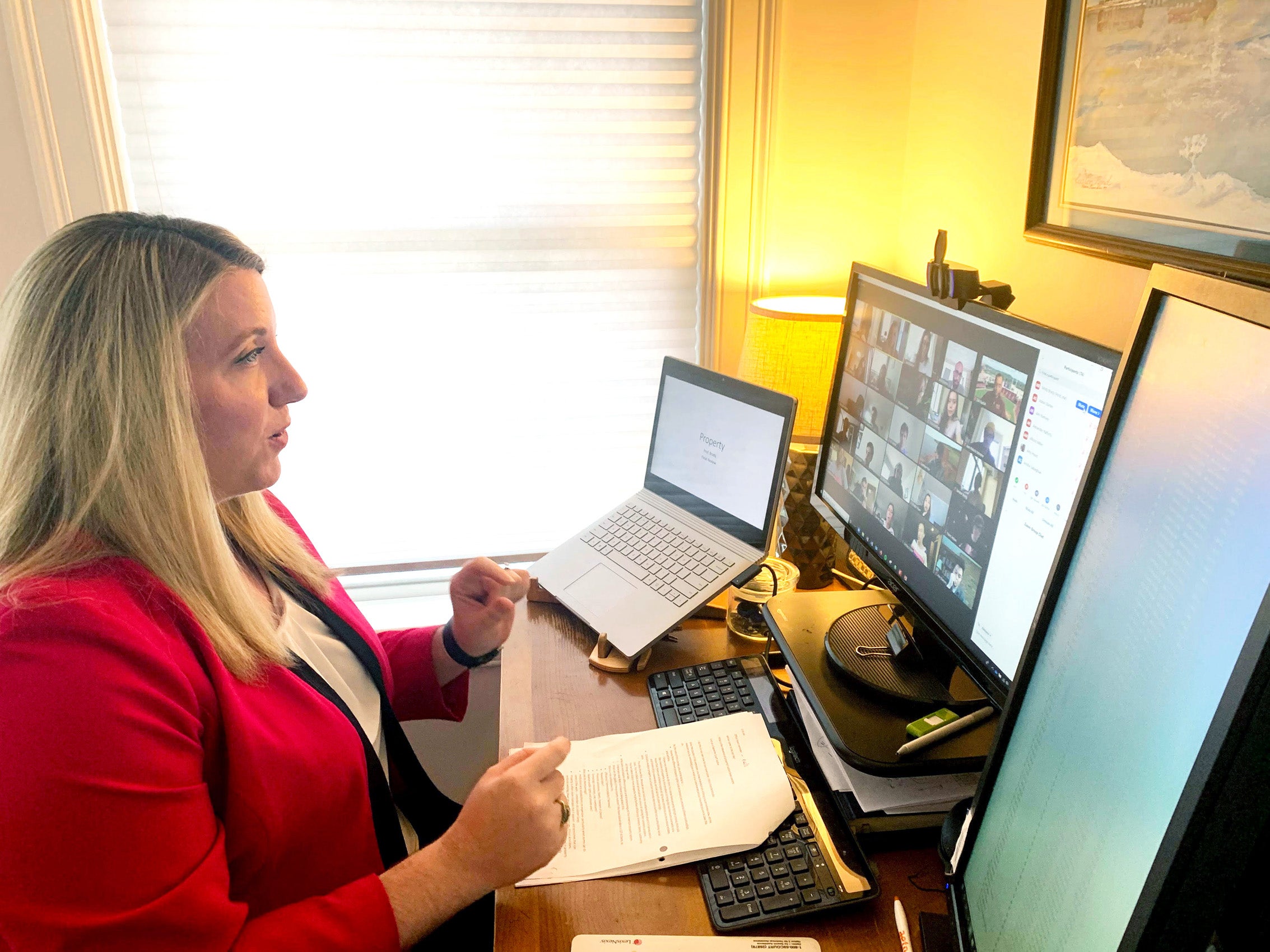People
Martha Minow
-
Protecting the media to protect democracy
November 16, 2021
At a Harvard Law School Library Book Talk, Martha Minow, along with Vicki Jackson and Nikolas Bowie, discussed why the press is in danger — and how to save it.
-
Is education a ‘right’? Case demanding civics classes tests theory.
November 12, 2021
Growing up in Providence, Rhode Island, Ahmed Sesay never had a class in civics. When he graduated from high school in 2019, he had to teach himself how to vote and pay his taxes. Now 20 years old, Mr. Sesay is part of a lawsuit being decided by a Boston-based court of appeals this month that argues that students have a constitutional right to an adequate civics education. ... “The insurrection was part of a larger pattern of people showing a lack of understanding of how our system works,” says Martha Minow, a legal scholar at Harvard Law School who filed an amicus brief in the case. She pointed to surveys showing that close to half of Americans can’t name the three branches of government and nearly a third could imagine supporting a military coup.
-
Why civics education should be ‘a right which must be made available to all on equal terms’
November 1, 2021
An op-ed by Martha Minow: While no task is more important to a society than educating each next generation, this task is central for a democracy. Self-government needs people equipped to govern — equipped with knowledge, motivation, and ability to pursue their own interests while also recognizing and caring about the rights and needs of others. The Supreme Court of the United States recognized this in the landmark 1954 Brown v. Board of Education decision. There, the highest court not only ended government-ordered racial segregation in schools but also enshrined education as the most important function of local and state governments and as “a right which must be made available to all on equal terms.” For too many students, that promise has not been realized and the federal courts have avoided recognition of a national, enforceable education right. That could change. Currently pending before the U.S. Court of Appeals for the First Circuit is A.C. v. McKee, a case brought by 14 Rhode Island students who seek to affirm the right to an education that includes at minimum introduction of knowledge, skills, experiences, and democratic values necessary for them to effectively exercise their constitutional rights to vote, to exercise free speech, to serve as jurors, and to participate in their democratic government.
-
On October 22, Harvard Law School dedicated the decanal portrait of Martha Minow, the 300th Anniversary University Professor.
-
The challenge in providing government assistance to ease the local news crisis is to find ways of helping those who really need it while keeping the bad actors out. Which is why Martha Minow said this week that she’s “hopeful” but “fearful” about a federal bill that would create tax credits to subsidize subscribers, advertisers and news organizations. “What I’m troubled about is: What’s local news, who defines it and how do we prevent the manipulation of this by multinational corporations?” she said. “That’s a problem, and I don’t know anyone who’s come up with an answer for that.”
-
Minow, Sunstein and Kennedy launch the inaugural issue of The American Journal of Law and Equality
September 22, 2021
This month saw the publication of the inaugural issue of The American Journal of Law and Equality, a project developed by three Harvard Law School professors in collaboration with MIT Press. The first issue features a variety of views from legal, academic and philosophical scholars, including its three editors and founders: 300th Anniversary University Professor Martha Minow; Michael R. Klein Professor of Law Randall L. Kennedy; and Robert Walmsley University Professor Cass R. Sunstein ‘78.
-
‘We have to spend more time on the inequalities that are embedded in the law itself’
September 21, 2021
September 2021 saw the publication of the inaugural issue of The American Journal of Law and Equality, a project developed by Professors Martha Minow, Randall Kennedy, and Cass Sunstein, in collaboration with MIT Press.
-
Harvard Law School unveils new shield
August 27, 2021
The new Harvard Law emblem is the result of extensive consultations by a working group of students, faculty, staff, and alumni led by Professor Annette Gordon-Reed.
-
Harvard Law faculty summer 2021 book recommendations
July 1, 2021
Looking for a new book to enjoy at the beach, park, or on your couch? Six HLS faculty members share what they’re reading this summer.
-
‘We’re on a collision course with sanity’
June 22, 2021
Harvard University Professor and former Harvard Law School dean Martha Minow argues for a new Fairness Doctrine and other reforms in a National Constitution Center panel on free speech and media.
-
Human Rights, Legal Systems, Technology, and Law School: An Interview With Martha Minow
May 24, 2021
Martha Minow, the 300th Anniversary University Professor and former Dean of Students at Harvard Law School, has taught at the law school since 1981. Before teaching at Harvard, Minow clerked for Judge David Bazelon of the United States Court of Appeals for the D.C. Circuit and for U.S. Supreme Court Justice Thurgood Marshall. She is an expert in human rights law and minority advocacy and has written numerous books and scholarly articles. Minow has also served on the Independent International Commission Kosovo, has received nine honorary degrees from schools around the world, and was appointed to the Legal Services Corporation by President Barack Obama in 2009. She received her undergraduate degree from the University of Michigan, her master’s degree in education from Harvard, and her law degree from Yale Law School. This interview was conducted in March 2021. It has been edited for length and clarity.
-
Should the internet be treated like a public utility?
April 20, 2021
At the annual Klinsky Lecture, Visiting Professor John G. Palfrey ’01, president of the MacArthur Foundation, says we need a regulatory regime for technology.
-
Canadian Supreme Court Justice Rosalie Abella appointed Pisar Visiting Professor of Law at Harvard Law School
April 7, 2021
Harvard Law School announced today the appointment of Canadian Supreme Court Justice Rosalie Silberman Abella as the Samuel LL.M. ’55 S.J.D. ’59 and Judith Pisar Visiting Professor of Law effective July 1, 2022.
-
COVID and the law: What have we learned?
March 17, 2021
The effect of COVID-19 on the law has been transformative and wide-ranging, but as a Harvard Law School panel pointed out on the one-year anniversary of campus shutdown, the changes haven’t all been for the worse.
-
Calling the shots
March 17, 2021
Disheartened by tales from family and friends frustrated by his home state of Pennsylvania's vaccine distribution system, Seth Rubinstein ’22, a second year student at Harvard Law School, knew he wanted to get involved.
-
Kennedy, Minow, Sunstein found new American Journal of Law and Equality
February 23, 2021
Three Harvard Law School professors have teamed up with MIT Press to launch a new journal focused on issues of inequality.
-
Lawyers Call Trump’s Defense ‘Legally Frivolous’
February 8, 2021
Taking aim at a key plank of the former president’s impeachment defense, the lawyers argued that the constitutional protections do not apply to an impeachment proceeding...Signed by Charles Fried, Martha Minow, Gerald Neuman, and Laurence Tribe.
-
How do we get to a more stable democracy? 6 writers chart a course
January 21, 2021
As soon as the videos began streaming in on Jan. 6, it became clear that the nation was experiencing something unprecedented and dangerous but also, in many ways, unsurprising. The storming of the Capitol in the service of false conspiracy theories had no single cause, and no single Biden executive order can undo the threats and divisions it exposed. Which doesn’t mean we shouldn’t try to ferret out the causes and game out solutions to America’s disinformation crisis. The Times gathered six writers who have been examining these issues for years...Annette Gordon-Reed: “I would add the loss in status of whites, particularly white males. The talk about political correctness is a cover for this deep concern about a loss of status. Income inequality is part of it, but there’s a group of people like the lawyer couple standing on their lawn with the guns — that just feel lost. The New York Times asked a group of people to suggest books for President Biden. I suggested W.E.B. DuBois’ ‘Black Reconstruction,’ because we’re in a moment where there are people who fear the growing political power of minority groups and Black groups in particular. And this has been a problem from the era that I studied, the early American Republic: Who are the folks who count? One thing that could be done about it would be for the government to actually be efficient, to actually work. We’ve become anti-government since the 1980s. And we have this entity that we pay taxes to that’s not supposed to do anything.” ... Martha Minow: “The Republican Party in particular for 50 years has bet on these divisions. We’ve seen this, sadly, in other countries where there are the ingredients of status anxiety and economic inequality. The question is, what do the leaders do? If leaders appeal to those fears and amplify them, that is a toxic environment. I hate to be grandiose about it, but that has given rise to genocides.”
-
Account/Ability
January 19, 2021
Juliette Kayyem, Anne Milgram, and Melissa Murray are joined by Martha Minow, Harvard University Professor, author, and renowned scholar on how divided nations unify, during one of the most historic and tumultuous weeks in US history, to discuss Trump's second impeachment, the storming of the U.S. Capitol, and how we begin to pick up the pieces of our fractured country.
-
Can The Senate Try An Ex-President?
January 19, 2021
President Trump, having reached the historic — and infamous — landmark of being impeached twice, now faces trial in the Senate. But unlike the first time, he will no longer be in office. So, does the Senate have the power to try an ex-president on impeachment charges? The Constitution says that after the House of Representatives votes to impeach a president or any other civil officer, the case is sent to the Senate for a trial, which "shall not extend further than to removal from office, and disqualification" from future office. Conviction requires a two-thirds vote, but barring Trump from future office would take only a majority vote. Scholars disagree about what the Founders intended. Harvard law professor Laurence Tribe and University of Texas law professor Stephen Vladeck note that there are six references to impeachment in the Constitution -- references that make clear removal is only one of the purposes of impeachment...Former Harvard Law School Dean Martha Minow explains that the court in that 1993 case viewed impeachment as a "political question," not reviewable by the court because under the Constitution, impeachment "is given over entirely to Congress." "I don't think any member of this current court would want to get into this mess," she adds. "This is one of the most controversial political moments in the history of the United states, dealing with an exceedingly unpopular president but one with devoted followers and a most divided Congress.” "Were the court to insert itself," she says, "it would put at jeopardy the one thing that the courts has, which is an arm's distance from the direct political process."

